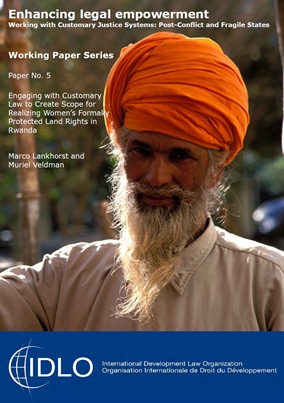Resource information
[Executive Summary] In rural Rwanda, women, particularly widows and divorced or abandoned women, face severe obstacles protecting and upholding their interests in land, resulting in diminishing land tenure security. Women have weak rights under customary law, and while reforms have strengthened their statutory land rights, such entitlements have limited practical value in rural areas where customary law dominates. Research was launched to investigate the types of interventions that might improve the likelihood that women’s land interests would be upheld in the context of customary dispute resolution. It was hypothesized that women would receive better outcomes if land-related disputes were resolved consistently at the village level, through mediation by a wider group of stakeholders, including representatives of a women’s interest group.
The results demonstrate that it may be possible to widen the scope for women’s land claims without modifying the substantive aspects of customary law, provided that such outcomes do not sit too uncomfortably with the overarching structure of the customary framework. This chapter discusses the results of this research and draws conclusions that may be useful both for rule of law programming in Rwanda and in similar country contexts.
You can download this publication from the International Development Law Organisation's (IDLO) website.


